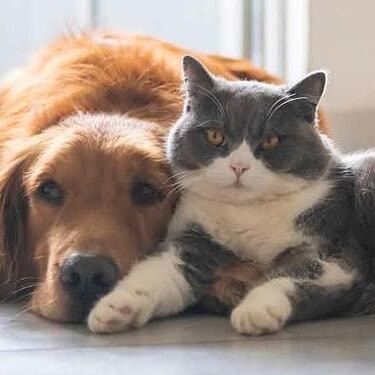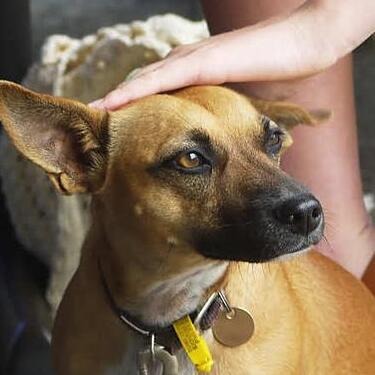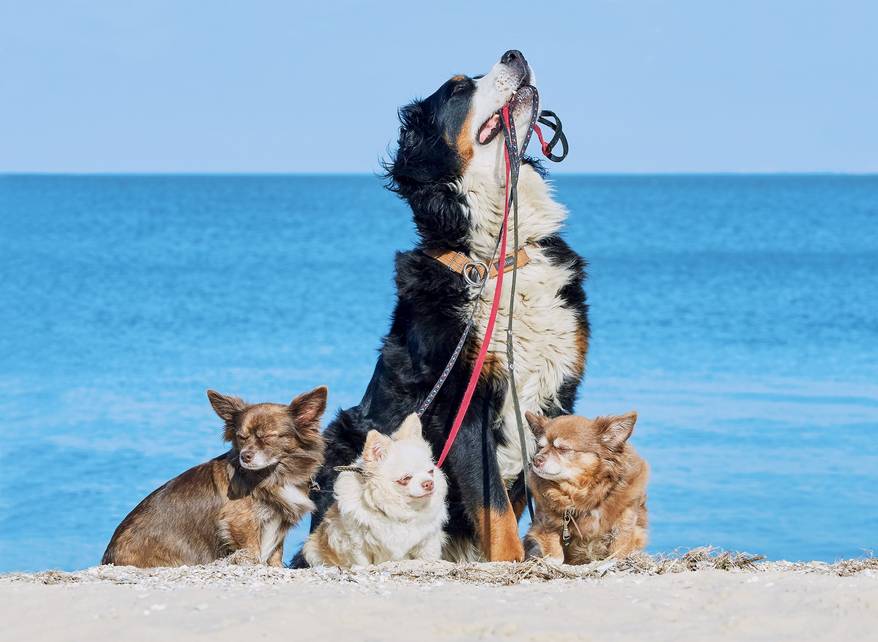
-
Find the right food for your petTake this quiz to see which food may be the best for your furry friend.Find the right food for your petTake this quiz to see which food may be the best for your furry friend.Featured products
 Adult Small & Mini Lamb Meal & Brown Rice Recipe Dog Food
Adult Small & Mini Lamb Meal & Brown Rice Recipe Dog FoodFor the faster metabolism of Small & Mini dogs
Shop Now Adult 7+ Small & Mini Chicken & Brown Rice Recipe Dog Food
Adult 7+ Small & Mini Chicken & Brown Rice Recipe Dog FoodFor the unique nutritional needs of mature Small & Mini dogs
Shop Now Hill's Science Diet Adult Oral Care Chicken, Brown Rice & Barley Recipe Dog Food
Hill's Science Diet Adult Oral Care Chicken, Brown Rice & Barley Recipe Dog FoodClinically proven kibble technology to reduce plaque & tartar build-up
Shop NowFeatured products Hill's Science Diet Adult Sensitive Stomach & Skin Dog Food
Hill's Science Diet Adult Sensitive Stomach & Skin Dog FoodHighly digestible recipe, gentle on stomachs. Nourishes skin & promotes a lustrous coat
Shop Now Adult Urinary Hairball Control Chicken & Rice Recipe Cat Food
Adult Urinary Hairball Control Chicken & Rice Recipe Cat FoodActively supports the health of the whole urinary system
Shop Now Adult Indoor Chicken Recipe Cat Food
Adult Indoor Chicken Recipe Cat FoodSupports energy level and beautiful fur in indoor cats
Shop Now -
Featured articles
 Easy DIY Dog & Cat Toys: Nine of Our Favorites
Easy DIY Dog & Cat Toys: Nine of Our FavoritesBrowse this comprehensive guide for several of our favorite DIY dog and cat toys that are sure to put a little pep in your pet's step.
Read More My Pet Ate a Lizard — What Should I Do?
My Pet Ate a Lizard — What Should I Do?Learn what to do if your pet eats a lizard, including whether they can be toxic and symptoms to keep an eye on when they've swallowed one.
Read More 15 Pet-Friendly Cities Ideal for a US Road Trip
15 Pet-Friendly Cities Ideal for a US Road TripCheck out our list of pet-friendly U.S. cities that are excellent travel options, offering off-leash dog parks and pet-friendly restaurants & hotels.
Read More -

Looking for a pet that is loyal, calm, smart and affectionate? Many of the best large breed dogs have all these qualities and more.
I Like Big Mutts and I Cannot Lie
Some people just fall in love at first sight when they see a big dog coming their way. If you are a large dog lover, then you like breeds that weigh over 50 pounds and are over 24 inches tall, according to PetLife. If you are looking for even more to fall in love with, dog breeds coming in at 100 pounds and above get classified as a giant or extra-large breed. However, there is no international standard for how large a large dog has to be. (If you have a Leonberger in the family, then even your stockiest Lab mix will look like a small pup.)
Is there a best large dog breed? That's a tough question to answer. The best dog for one person might not be the best for another, and your choice should depend on the answer to several questions. Do you live alone or do you have a family with younger children? Are you looking for a dog that is independent or one that is by your side all the time? Do you want a dog that will enjoy an active lifestyle or one that will curl up and cuddle? If you know you love big dogs, but you aren't sure which breed is the perfect match for you, do some research first.
Super Pups
When exploring big dog breeds on the American Kennel Club's (AKC) breed descriptor, one trait you'll notice that comes up for almost all of their top fifteen large breed dogs is "loyal." The Neapolitan mastiff, bullmastiff, Newfoundland, Dogue de Bordeaux, and Great Dane are all extra-large dog breeds that have a strong history of being loyal and devoted to their pet parents. Though most extra large and large dogs are fairly calm, there are a few breeds that will need some extra space to run off their energy. While it seems contrary to their size, large breed dogs can actually fair well in smaller places like apartments, provided they get enough exercise outside the home (and you keep anything breakable outside the wag of their giant tails).
An example of a fairly active large dog is the Bernese mountain dog. Ranging from 90-120 pounds, he comes from the working dog group and loves to be outdoors. If you are active and love to hike, this dog may be the perfect match for you. Keep in mind that most large dogs that fall in the working group will need a fair amount of daily running and exercise; however, the Dogue de Bordeaux is one that might be happier with just a walk. This breed, which the AKC notes was made famous in the movie Turner and Hooch, may be a bit to handle at first, but his loyalty and trainability make him a great fur friend for life. Finally, the Great Pyrenees is a breed that needs daily exercise, but is also happy to nuzzle you on the couch. His calm and affectionate nature along with a soft and fluffy coat make him a favorite among many large dog lovers.


Tasty Tips
Bigger Dogs, Bigger Costs
It's important to keep in mind that larger dogs will need more food and may cost more for grooming, as well. When making the decision to get a larger dog, be sure you are ready for the extra expenses. Large breed puppies will go through many different collars, beds and leashes until they hit their full size. Some larger breeds are also more susceptible to hip and joint issues as they age, and you should talk with your vet about conditions that your puppy might be more likely to develop. In order to keep costs from getting out of hand, follow your vet's recommendations for the best large breed dog food, feeding schedule and exercise routine. The best big dog breeds are healthy ones, and in order to keep them healthy, you need to know their needs ahead of time and be proactive about giving them the best possible care. Also, keep in mind that larger dogs tend to age faster than their younger companions. They tend to reach senior level status sooner, and generally have a shorter lifespan.
One other thing to note about bigger dog breeds is that they have access to a lot more things around the home. Generally speaking, keeping any type of food on a table or countertop is just a snack waiting to happen for them. Also, if you plan on allowing them on furniture, be prepared to have your very own lap dog because they're likely to take up the entire sofa. Because of their size and reach, training is crucial to maintaining a civilized home — don't fret, these dogs are often gentle giants and very capable of learning.
If you don't have a specific breed in mind, also remember that there are hundreds of big dogs in shelters that could use a giant-sized forever home. With so many large and extra-large breeds to choose from, there is surely one out there that would love to take a huge place in your heart.


Chrissie Klinger is an educator, writer and mother of two children, three dogs and three cats. Her dog Jake loves sitting on her lap every chance he gets! She enjoys living an active and eco-friendly lifestyle in rural Pennsylvania.
Related products

For the unique nutritional needs of mature Small & Mini dogs

For the faster metabolism of Small & Mini dogs

Improves everyday ability to get up & go

Clinically proven kibble technology to reduce plaque & tartar build-up
Related articles

Discover how the field of dog science is giving us more and more insights into the inner workings of our furry best friends.

Your dog's coat and skin are a big part of your dog's overall health. Ensure you keep your dog's coat healthy, by following these simple tips.

Understand the role that Omega-6 and Omega-3 fatty acids play in your dog's overall health, and how you can ensure they are getting enough.

Learn basic steps & precautions for treating a cut on your dog, including what you can put on the cut, and when you should take them to the vet.

Put your dog on a diet without them knowing
Our low calorie formula helps you control your dog's weight. It's packed with high-quality protein for building lean muscles, and made with purposeful ingredients for a flavorful, nutritious meal. Clinically proven antioxidants, Vitamin C+E, help promote a healthy immune system.
Put your dog on a diet without them knowing
Our low calorie formula helps you control your dog's weight. It's packed with high-quality protein for building lean muscles, and made with purposeful ingredients for a flavorful, nutritious meal. Clinically proven antioxidants, Vitamin C+E, help promote a healthy immune system.


